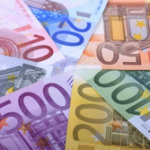 Wednesday’s market was nearly flat, but SPY’s 0.07% rise was significant because it signaled that early April’s false starts and declines have lost traction, and the seasonal decline in stocks is not here quite yet. Now, investors need to consider if it will come, and that relies a great deal on how earnings season treats us.
Wednesday’s market was nearly flat, but SPY’s 0.07% rise was significant because it signaled that early April’s false starts and declines have lost traction, and the seasonal decline in stocks is not here quite yet. Now, investors need to consider if it will come, and that relies a great deal on how earnings season treats us.
Promising Earnings
Already, several companies have shown strong earnings. BA and YUM rose over 3 percent with better-than-expected earnings, and Apple showed a better-than-expected decline in profitability. In disappointments, PG and T fell over 5% each on falling sales.
But macro-economically, the mixed news is better than bad, and that’s exactly what investors needed. After years of falling earnings, lowered expectations, and thinning margins, investors are looking for a sign that consumer confidence is rising and that more people are ready to spend. While there is no clear sign that consumers are back in the market–and signs that consumers are wary, such as a nine-month low in consumer confidence–there are enough promising reports from companies to suggest that the economy is not slumping, and that the slow recovery is still with us.
Europe’s Debt Dilemma
Across the pond, an ideological and economic debate has been raging between countries. The issues are complex, but boil down to two opposing views: first, German and British politicians are pushing for austerity. The idea is that by cutting government spending the market will become more disciplined and efficient, leading to growth. Then there is the Keynesian opposition, whose most vocal proponent is Paul Krugment. They believe that governments need to spend more to stimulate the economy, and that austerity will just lead to deeper and longer recessions.
Last week, news spread that the key study used by austerity supporters had a major flaw: the researchers made an error in their Excel spreadsheet formula and, once that flaw was corrected, the study suggested that austerity actual slows economic growth. Yet another good lesson that all analysts, economists, and investors should check their formulas several times.
Now Europe is backing away from austerity, with European Commission president saying that austerity was reaching its limits.
After that sign that austerity was over, European equity markets rallied, with the Euro STOXX rising 1.5% in a day. It rose again the next day on strengthening earnings.
Now if earnings are getting stronger in the developed countries, there is good reason to be optimistic about equities. However, earnings season is not over and a sign that Europe will go back to austerity could erase those gains.
